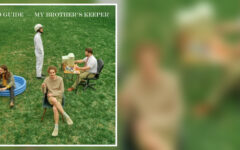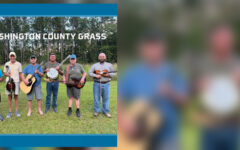
Perhaps the surest sign that bluegrass has grown to a mature musical form is the fact that it has now segmented itself into a number of subsets. Each has its own dedicated following, with artists catering to the style, labels that record and promote the music, agencies that specialize in promoting it, and festivals committed to preserving it.
There is the traditional sound, what used to just be called bluegrass, the more progressive style where performers use the common instruments associated with Bill Monroe to play music that bears little resemblance to his Blue Grass Boys, and looser configurations that merge folk, swing, and grassy approaches to original music. There are the jam grass bands that take after The Grateful Dead, and the retro grass outfits that take us back to the 1950s. There are even bands intent on recreating the music of the big ’80s rock groups, with acoustic instruments.
That all this is viewed generically as “bluegrass” serves our music well in the main, though it can lead to confusion among some consumers. And like all factions, each surely feels that their is the “true bluegrass,” the one that will win out in the end.
Perhaps the largest component these days is what might be called contemporary bluegrass, given to tightly-crafted songs, more sophisticated arrangements, and high-level instrumentalists, delivered by skilled vocalists. It retains most of the elements that defined the earliest examples of the music, and has begun to absorb what a few years ago was known as acoustic country. And the further that pop country moves away from its traditions, the bigger the door for bluegrass to incorporate that sound.
This is where an artist like Billie Reneé Johnson shines, in this contemporary bluegrass realm, and where she is likely to find a great many fans thanks to her new Songs From The Heart album from Truegrass Entertainment. It shows her to be a fine bluegrass singer, with a very attractive voice, and the power and range to sing this music with the aggressive edge that has become its hallmark.
Johnson has been performing and recording for 20 years, but this is her her first project with a national label, where she is assisted by a top engineer and producer, and some of the finest bluegrass talents Kentucky has to offer. Her touring group, Cumberland Gap, supports her on several tracks, as do stellar pickers like Ron Stewart, Matt Leadbetter, Harold Nixon, and Kyle Perkins. Helping out on harmony vocals are Rickey Wasson, who also produced, and Marty Raybon.
But it’s Billie Reneé who makes this record jump, and the terrific songs she’s chosen for this album. The tracks have a muscular bluegrass feel, with a country vibe supplied by her strong, unaccented singing. Opening with an upbeat version of Your Memory by Charles Quillen and John Schweers, which was a hit for Steve Wariner in 1982, she demonstrates a command over the song, and this sort of material, which calls to mind the music Rhonda Vincent released when she first returned to bluegrass in 2000.
She keeps with the classic country for A Wound Time Can’t Erase, first cut by Stonewall Jackson in 1962, and since covered by nearly everyone in Nashville, from Johnny Cash to Ricky Skaggs and George Jones. And again with Vern Gosdin’s Who Are You Gonna Blame It On This Time which gets a sassy grass treatment and serves as the album’s first single. Like the opening track, Blame is sped up and delivered with what Adam Steffey calls a “mean” sound. It’s likely to be a very popular track with bluegrass radio.
Johnson gives a tender reading to Burton Collins and Sally Barris’ Some Things I Know with Raybon, which Lee Ann Womack had recorded as a duet with Vince Gill in ’98, and her own Good In Goodbye, a lovely old-timey sounding waltz with sparse accompaniment. A pair of bluegrass classics get a fine reworking here, in The Osborne Brothers’ Listening To The Rain, and Herb Pedersen’s Old Train. Not many artists tackle Old Train, after near-definitive recordings by Tony Rice and Seldom Scene, but Billie Reneé adds enough of her own style to make this one a worthy addition.
Surely the highlight is her duet with Rickey Wasson on If I Needed You, written by one of the 20th century’s most influential songwriters, Townes Van Zandt. Rickey’s rich baritone is the perfect foil for Billie’s voice, and this track is a major artistic success. I’m sure I played it three times in succession on first listening.
The album ends with one of the most beloved songs in bluegrass, Carter Stanley’s Could You Love Me One More Time. She uses a very simple arrangement, and sings this poignant love song with the right balance of passion and emotion. This one gets me every time.
Perhaps most striking about Johnson’s singing is the strength and the drive she imparts with her voice. A great many female vocalists in bluegrass go for a softer sound, finding a niche in a sort of Alison Krauss pattern. But not Johnson. She is balls to the wall, to employ the old aviation term, pushing plenty of air from her diaphragm and belting it out, without ever sacrificing tonal quality or pitch. That’s a tough thing to accomplish.
Kudos to Billie Reneé and Truegrass Entertainment for a highly satisfying album in Songs From The Heart. Like their Croweology project last year celebrating the music of J.D. Crowe & The New South, this is a keeper.







